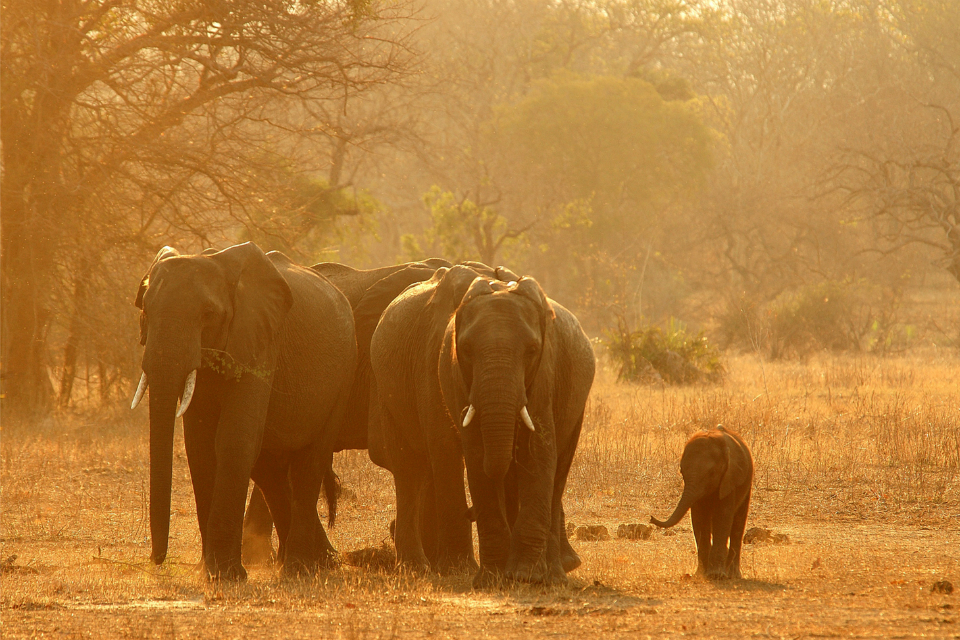Global momentum to end the ivory trade: article by Boris Johnson
Writing in The Times, the Foreign Secretary says that a new global consensus, driven by UK leadership, is emerging that buying or selling ivory is unacceptable.

2018 must be the year we defeat the ivory traders
There is one question I would never want the children of the future to ask; in fact I’m haunted by the thought that they might. How could we reply if they feel compelled to enquire: “Why did you not do more to save the elephant?”
Humanity is privileged to share the planet with these magnificent throwbacks from the Pleistocene, whose every attribute is a walking metaphor, and to be frank I find it heart-breaking to observe how their numbers have declined.
Four decades ago, the great zoologist Iain Douglas-Hamilton assembled a small squadron of light aircraft and embarked on the first comprehensive survey of the elephant populations of Africa. In 1979 he found that 1.3 million elephants roamed the savannah and rainforest. Today, we are down to 415,000 African elephants and the pace of slaughter has recently accelerated. At least 110,000 have been wiped out since 2006: in East Africa, half of the elephants are gone; in Tanzania, nearly two thirds have vanished.
If we do nothing, there is a real danger that our great grandchildren will grow up in a world without wild elephants. They will look at yellowing photographs of giant herds, they will watch David Attenborough documentaries on their ipads (or whatever virtual reality wizardry will then be commonplace), they will marvel at how such creatures once walked the earth, and then they will point accusing fingers and ask why their forebears – you and me - somehow neglected to save the elephant from extirpation?
China government ban on domestic sales
So it is fantastic news that decisive action is now being taken. About 70 per cent of the ivory hacked from the carcasses of poached elephants finds its way to China. There, workshops specialise in converting magnificent tusks into ornamental knick-knackery for display in countless homes.
But that will soon change. From 31 December, the Chinese government will ban the domestic sale of ivory, albeit with certain exemptions. The biggest ivory market in the world - in which poachers and dealers enrich themselves – should then be restricted.
Everything will depend on how this measure is enforced – and we must be cautious until we see the full impact. But just the prospect of a reduction in Chinese demand is already having an effect. If you track the volume of online advertising for ivory products, you will find that it declined by almost a third in the first four months of 2017, compared with the same period last year. The price of raw ivory also appears to be falling, reducing the profits to be made from butchering elephants.
Once the Chinese ban comes into effect, I hope these benign trends will gather pace. But this far-sighted decision by China’s leaders signifies something even more important, namely the emergence of a global consensus that buying or selling ivory is no longer acceptable anywhere. Saving elephants is not some Western obsession, but a cause that unites humanity.
UK action to tackle the Illegal Wildlife Trade
Britain has done a huge amount to encourage this new consensus. The Duke of Cambridge, whose passion for conservation is well known, met President Xi Jinping of China twice in 2015 and Prince Harry has just been named president of African Parks, a conservation NGO. In the New Year, the Government will act on our plans for a British ban on domestic ivory sales; in October I will co-host with Michael Gove an international conference in London on how to curb the Illegal Wildlife Trade.
And in the besieged strongholds of the African elephant, Britain is helping to beat the poachers. When I visited Kenya in March, I met the UK-funded Anti-Poaching Team that protects the elephants of Lewa Conservancy.
My aim is to make 2018 the year of UK leadership in defeating the ivory trade: wherever I go as Foreign Secretary and whenever I meet the representatives of a relevant country, I will repeat our message.
I did just that when I saw the Japanese foreign minister, Taro Kono, here in London earlier this month. Japan has a large domestic ivory market and its government could play a key role in stamping out elephant poaching.
I’ve instructed our diplomats in embassies across the world to have frank conversations with our friends and allies.
The slow death of Africa’s elephants is a disaster that proceeds from other disasters. Poaching is but one tentacle of the octopus of corruption, trafficking and gun-running that suffocates states and holds back national economies across Africa and Asia. If China now deprives the ivory poachers of their biggest global market, then the whole edifice of trans-national organised crime will be weakened.
Africa’s elephants face many other threats besides poaching. Year after year, their habitat is lost or degraded. They are locked in a struggle for land and water with rising human populations. Yet with determination and goodwill, I have no doubt that we can solve these problems - just as we are acting to curtail the ivory trade - and ensure that our great grandchildren share our planet with elephants.